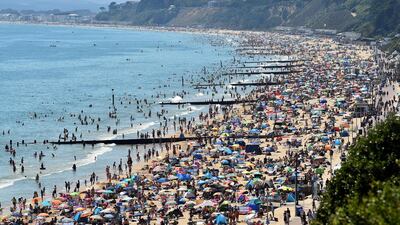Elderly people are dying across the world from heat-related illnesses at a record rate, a key study on climate change and health has warned.
Research published in The Lancet found deaths caused by hot temperatures in over-65s have more than doubled over the past two decades.
Older people also experienced a record cumulative 2.9 billion days of heatwave exposure last year.
The study also found heat-related deaths among the UK’s elderly population have more than doubled since the early 2000s.
“Climate change drives a cruel wedge that widens existing health inequalities between and within countries," Prof Hugh Montgomery, an intensive care doctor at University College London, said of the findings.
“Our report shows that just as for Covid-19, older people are particularly vulnerable, and those with a range of pre-existing conditions including asthma and diabetes are at even greater risk.”
The report measured each country’s capacity to deal with the health threat posed by climate change, based on 40 key indicators.
Among them are: the deadliness of extreme weather events; the frequency of droughts, floods and fires; and the readiness of health systems for a major crisis.
The study found only half of the countries surveyed had drawn up national health and climate plans, while two thirds of global cities surveyed expect climate change to “seriously compromise” public health infrastructure.
“Flames, floods and famine do not respect national borders or bank accounts," Prof Montgomery said.
"A nation's wealth offers no protection against the health impacts of even a 1.2°C global average temperature rise."
The report, written by experts from 35 institutions including the World Health Organisation, is published on the fifth anniversary of the Paris Agreement.
Experts have warned that the risk of another pandemic increased with a warming climate.
Dr Richard Horton, editor-in-chief of The Lancet, said in an accompanying editorial that the two global threats were "inextricably entwined".
“If we wish to reduce the risk of future pandemics, we must prioritise action on the climate crisis – one of the most powerful forces driving zoonoses today,” he wrote.
Zoonoses are diseases passed from an animal or insect to a human.
Meanwhile, the WHO said the coronavirus crisis offered the world a chance to lead a green revolution.
“With trillions being invested globally in economic support and stimulus there is a genuine opportunity to align the responses to the pandemic and climate change to deliver a triple win – one that improves public health, creates a sustainable economy and protects the environment,” WHO environmental director Dr Maria Neira said.











